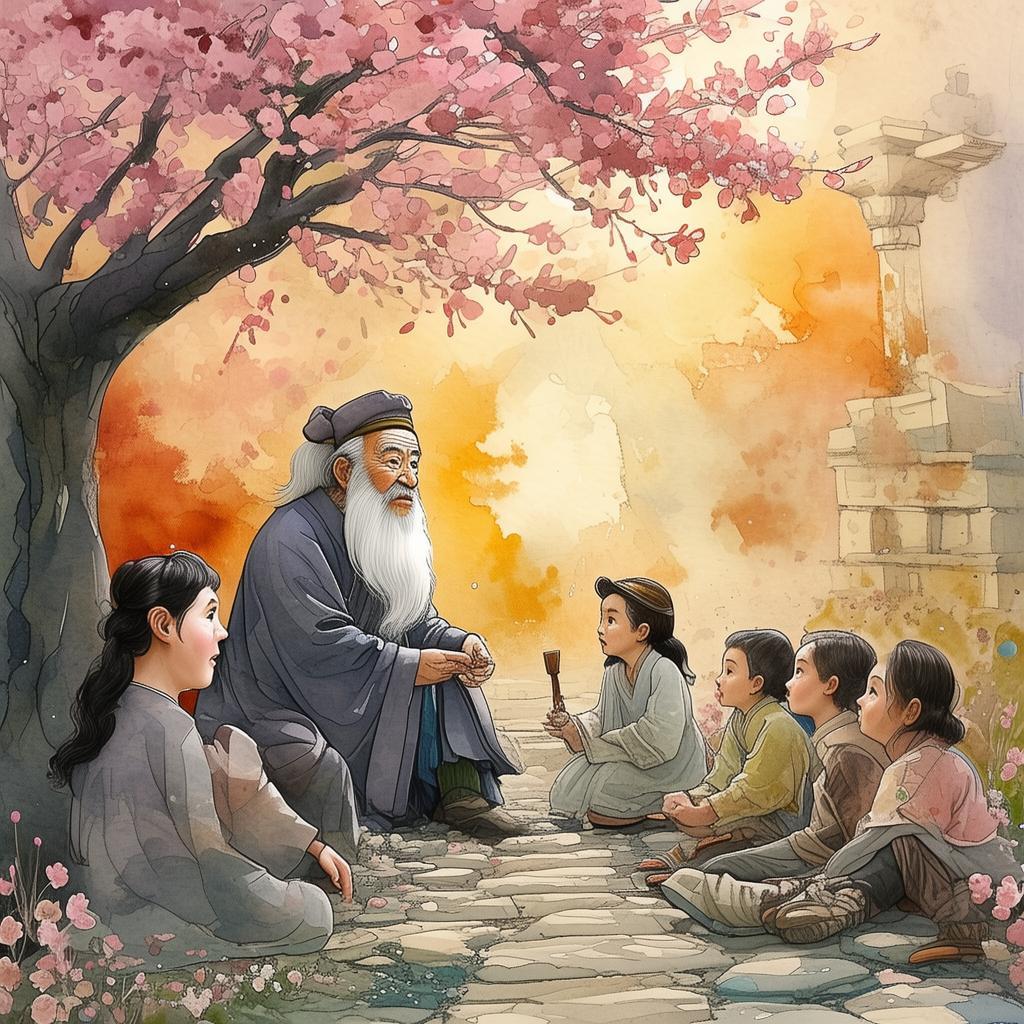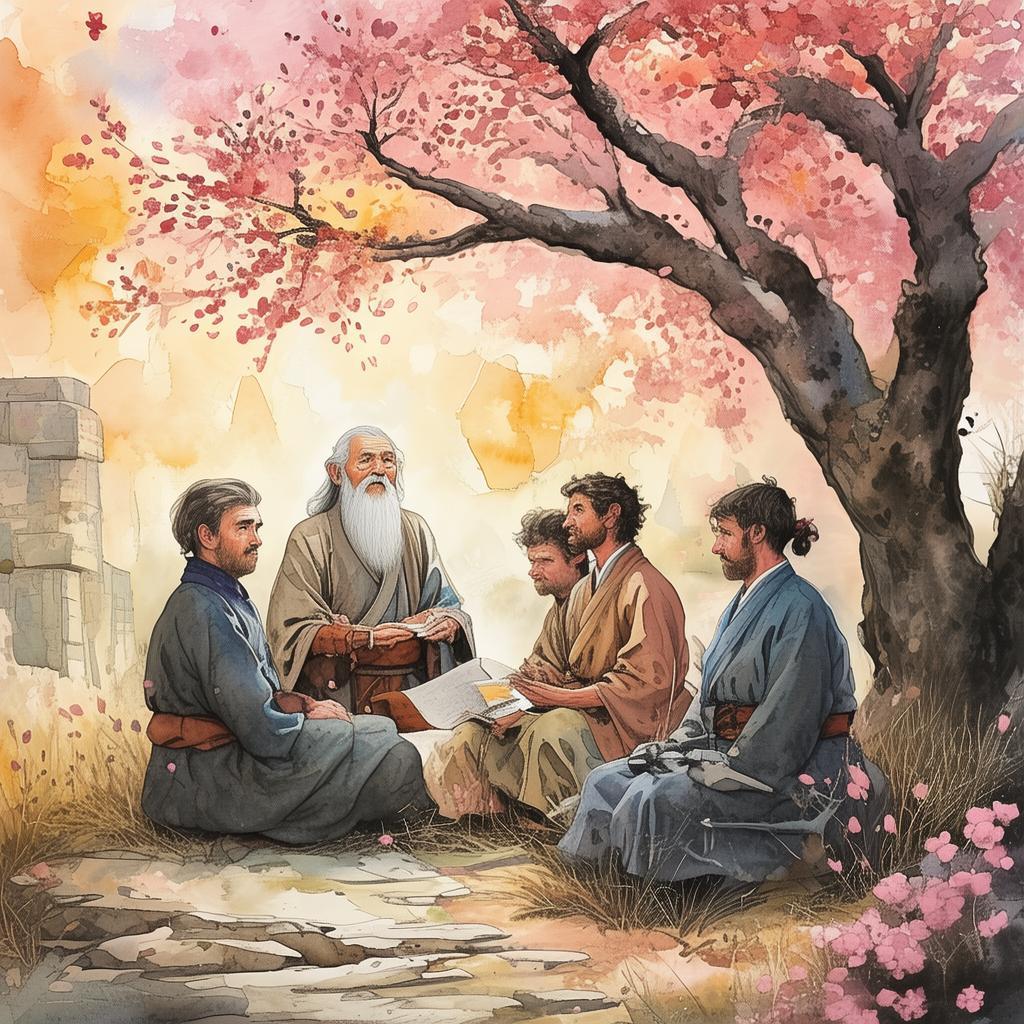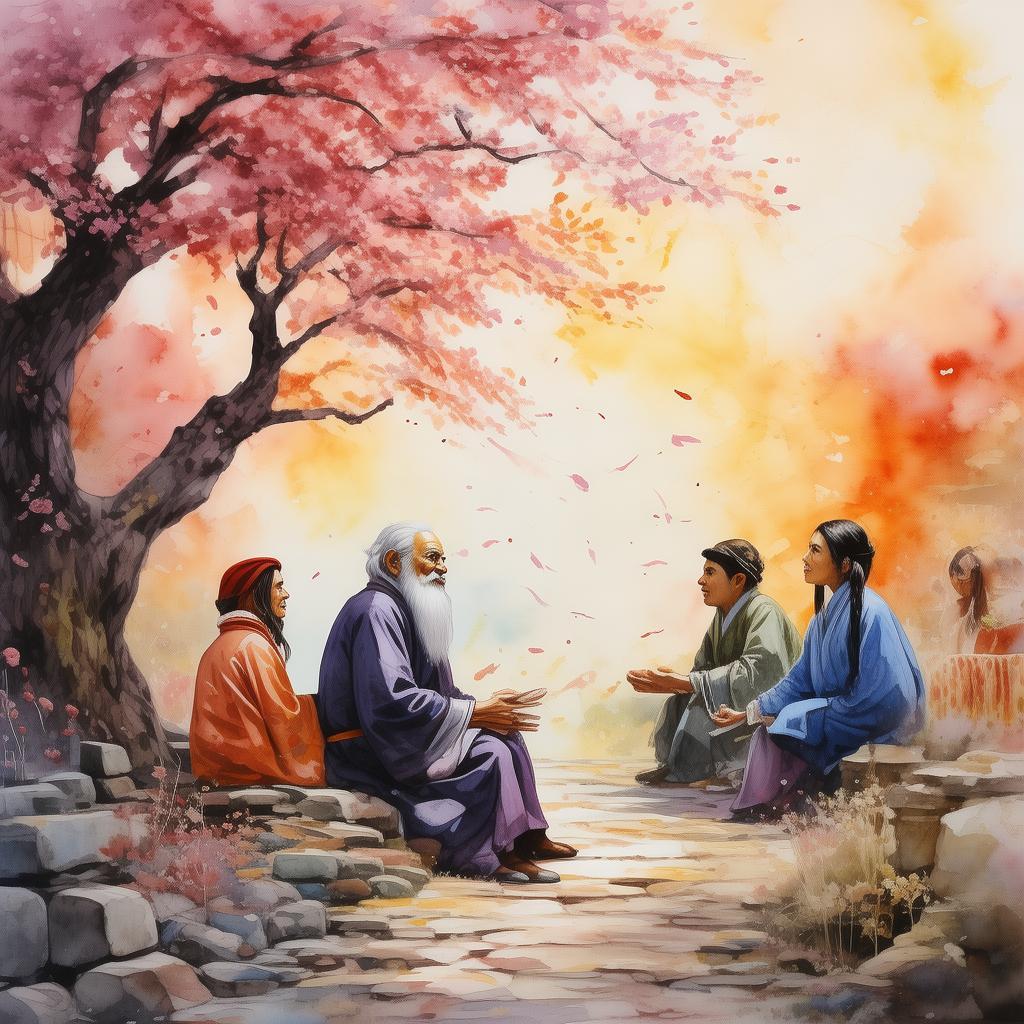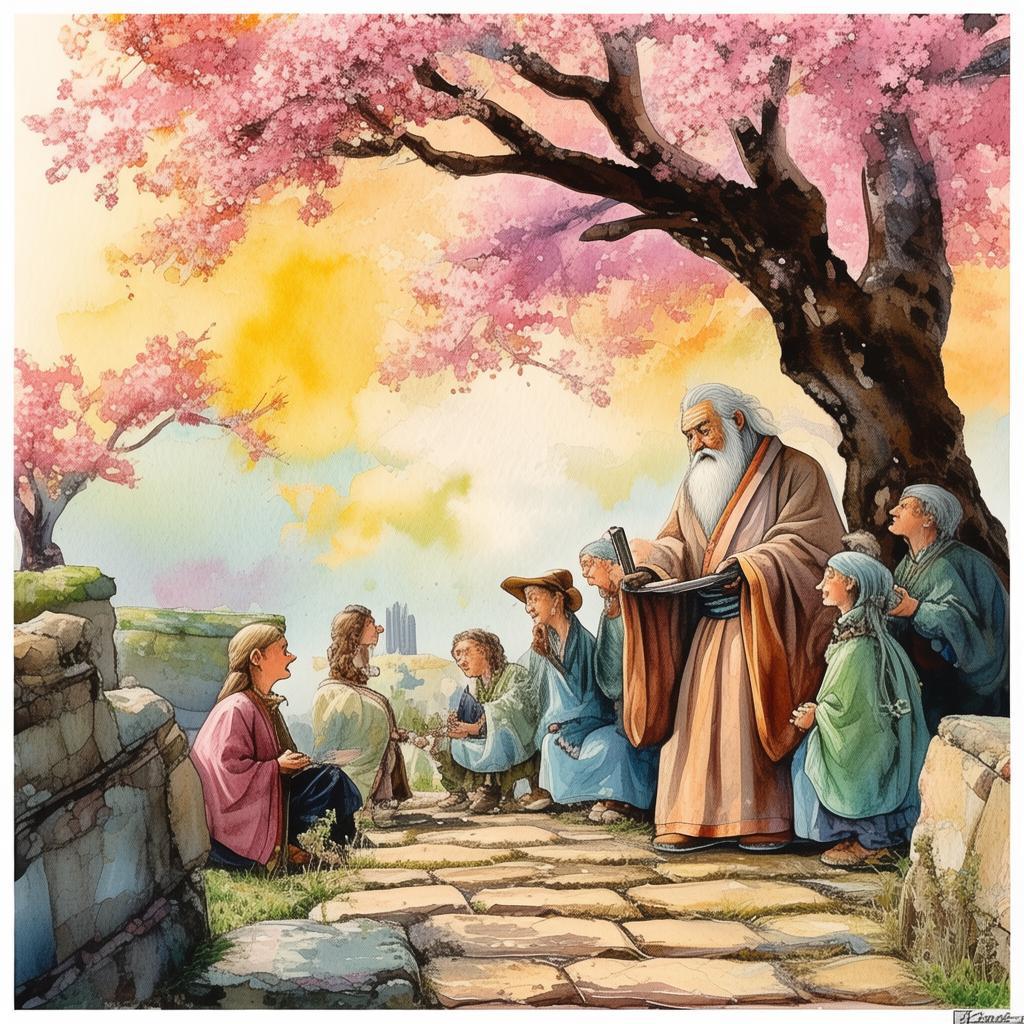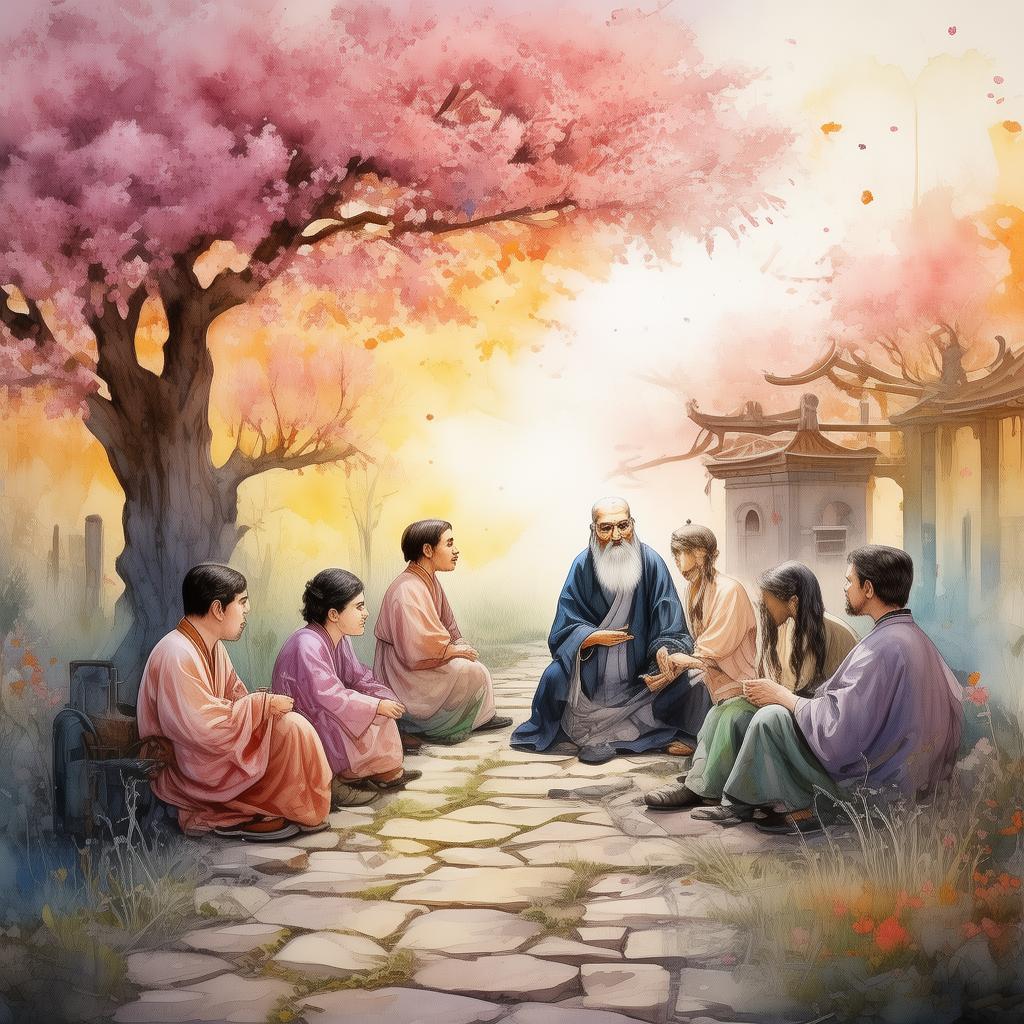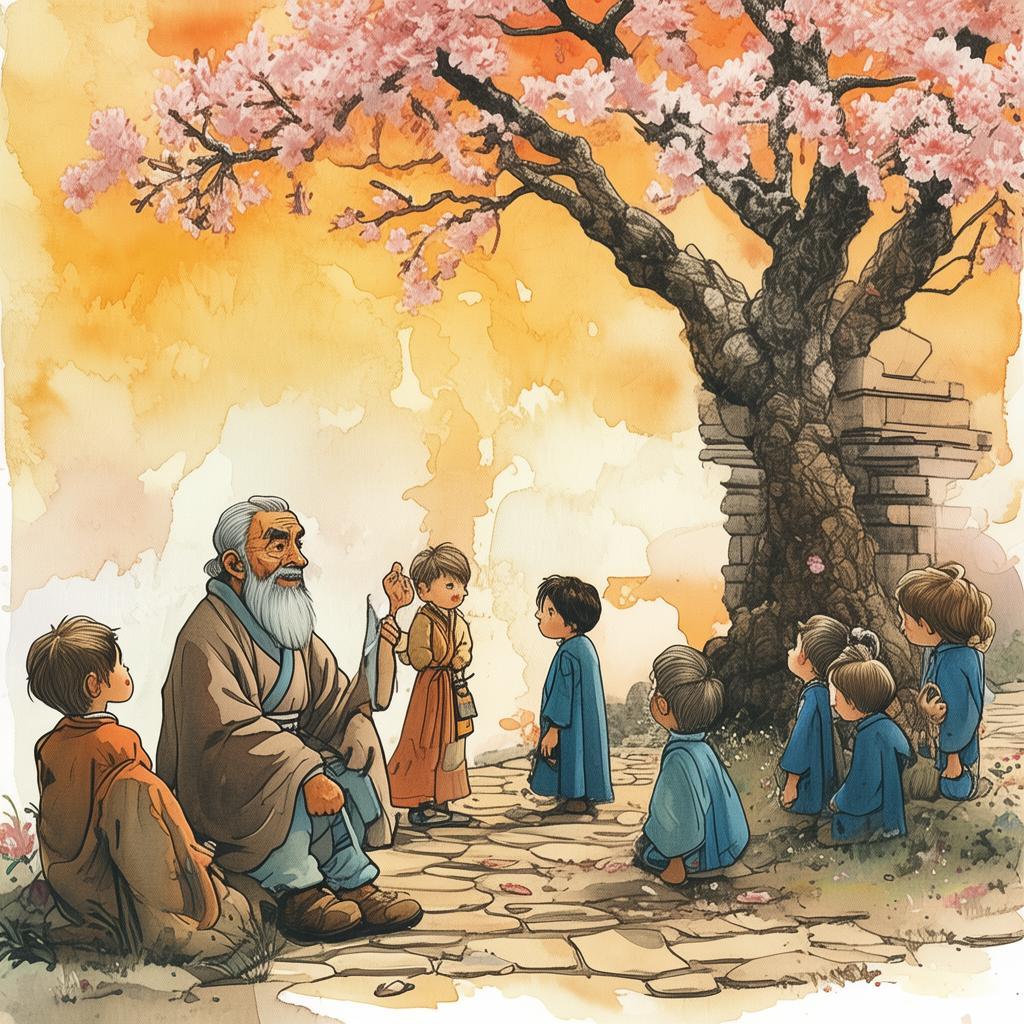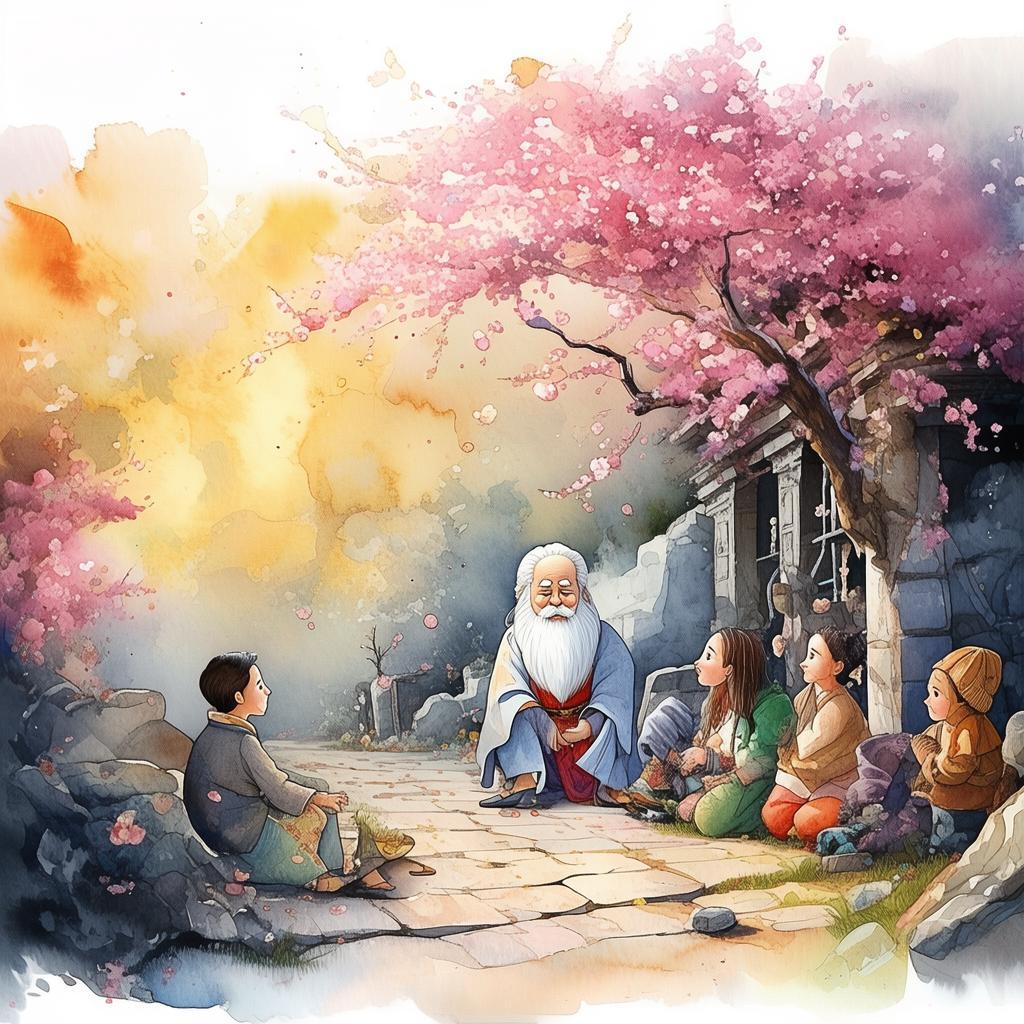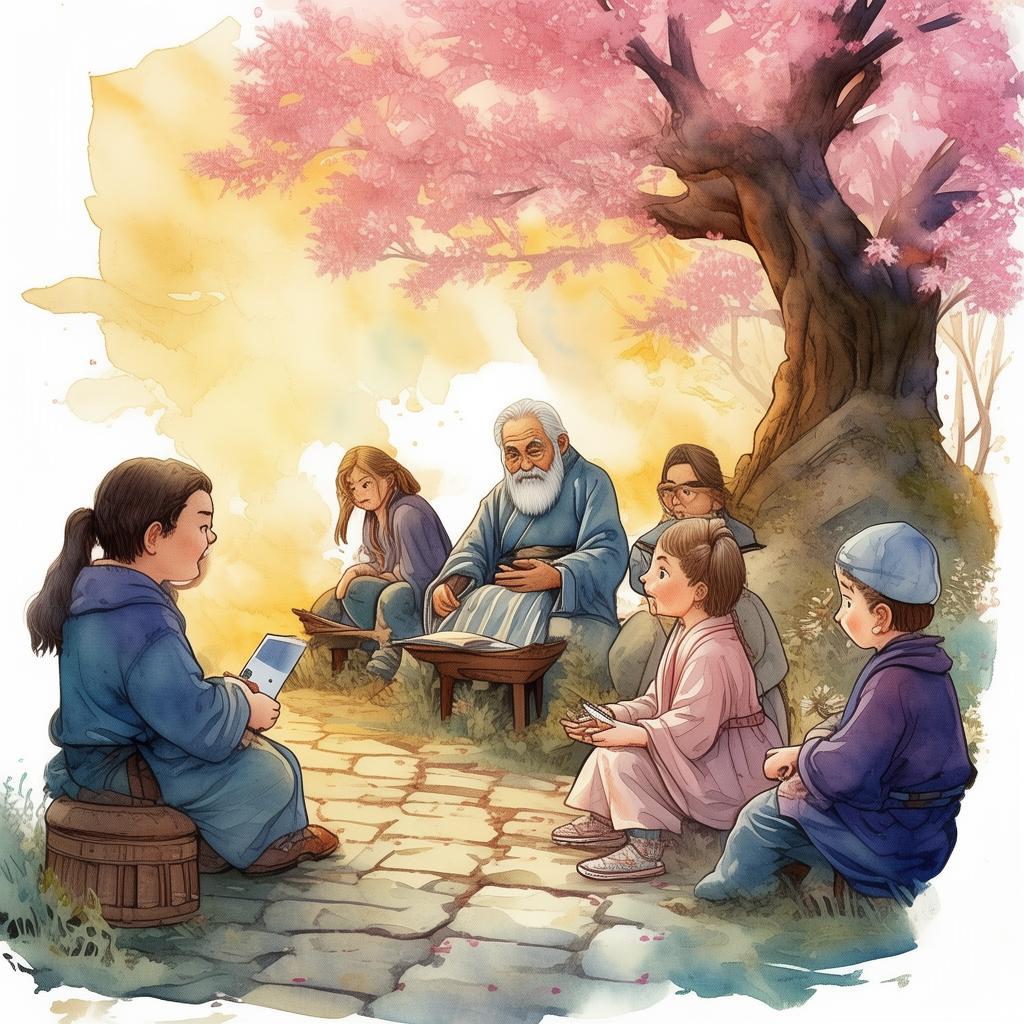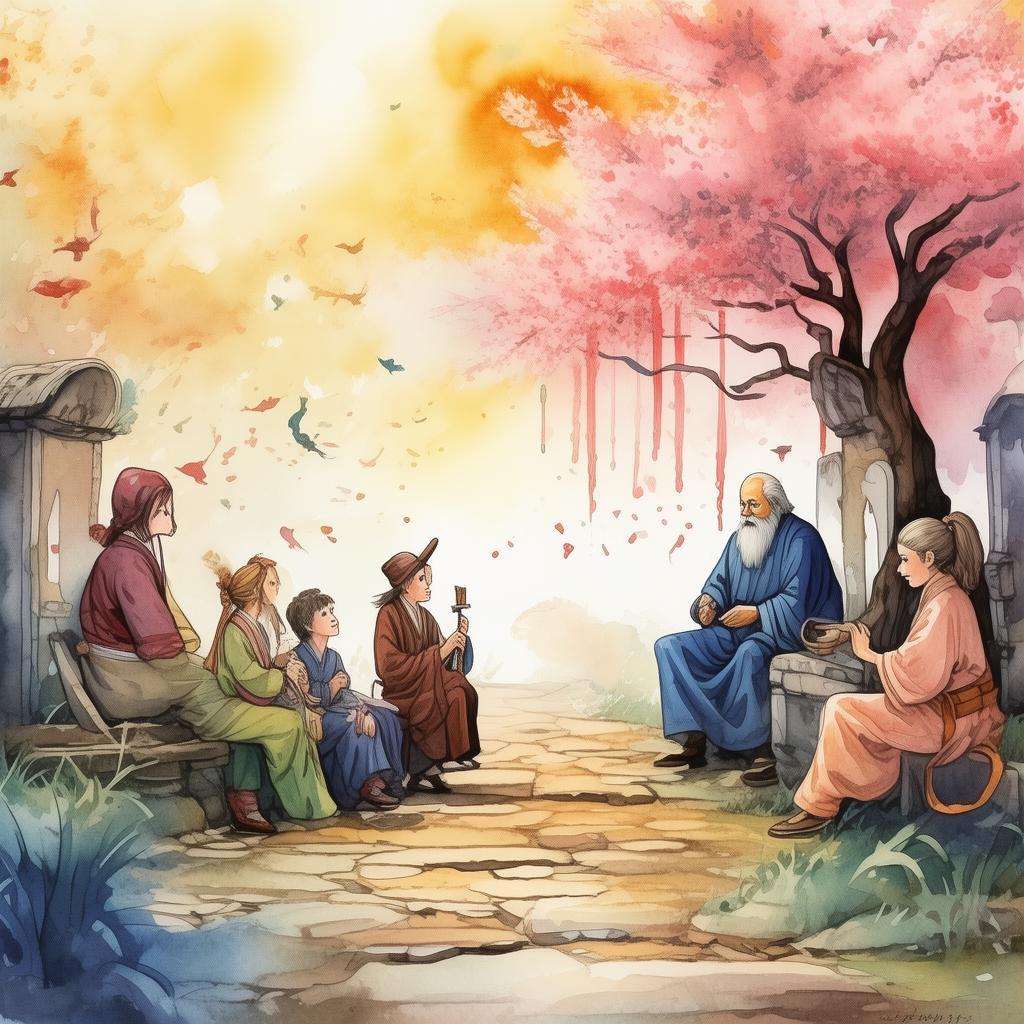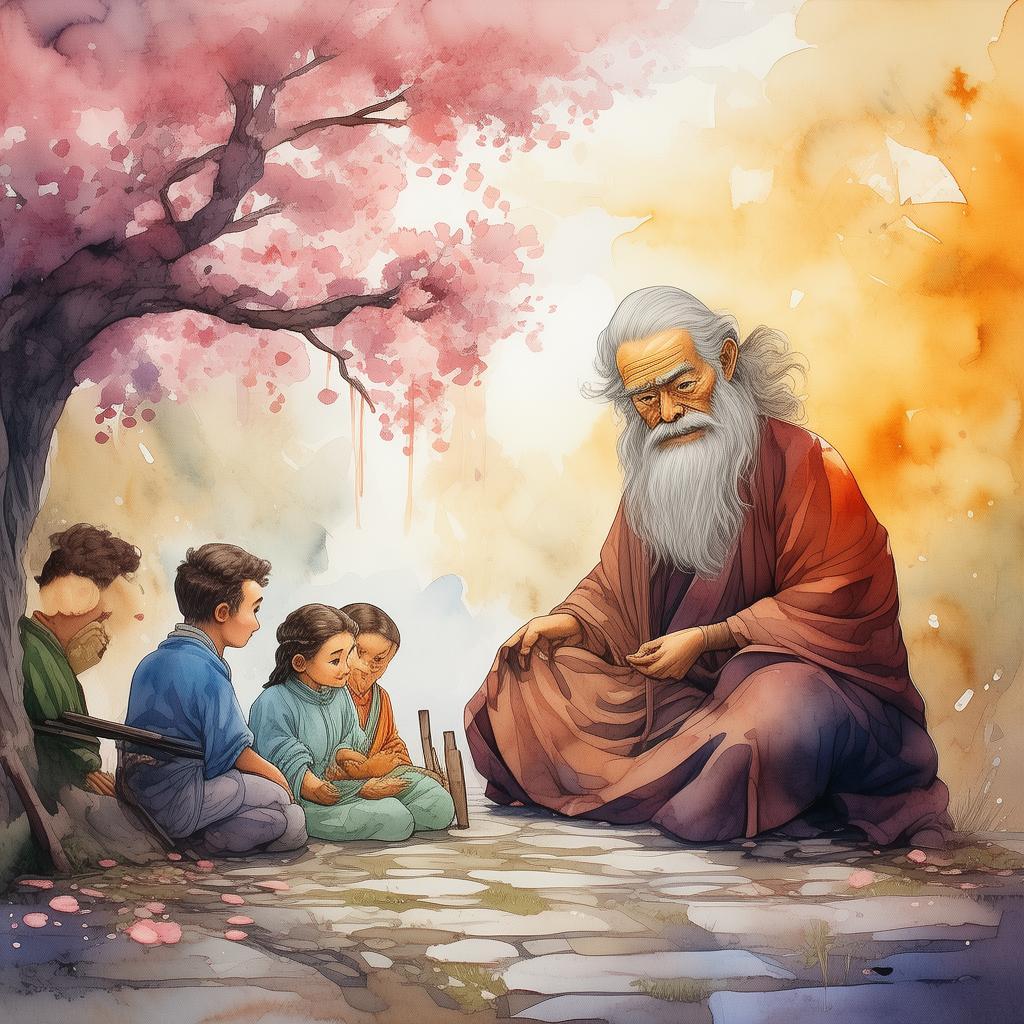Time Weaves: The Paradox of the Mirror of Idiomatic Beauty
In the heart of ancient China, amidst the whispering bamboo groves and the serene waters of the Li River, there lived a young scholar named Lin. He was known for his vast knowledge and insatiable curiosity, a trait that set him apart from his peers. Lin had always been fascinated by the concept of idiomatic beauty, the idea that certain expressions hold a power beyond mere words, reflecting the essence of a culture's spirit.
One fateful morning, as the sun began its ascent and painted the sky with hues of gold, Lin received a scroll from an old friend. The scroll contained cryptic instructions to seek out a mirror hidden in the enigmatic Parallel Realms. It was said that the mirror held the secret to idiomatic beauty and could transport one to realms where their words were imbued with the power to shape reality.
Armed with the scroll and a heart full of wonder, Lin set out on a journey that would span centuries and dimensions. His first stop was a realm where the language was a dance of poetic imagery, and every word was a brushstroke on the canvas of reality. Here, he learned that idiomatic beauty was not just a reflection of the culture but a beacon that guided the way in the vast sea of existence.
In this realm, Lin encountered a wise old sage who spoke in riddles and parables. "The mirror of idiomatic beauty," the sage said, "is not a mere reflection but a portal. It shows you not just what you are but what you could be, what your culture could be."
The sage handed Lin a small, ornate mirror, its surface etched with ancient symbols. "Use this mirror," he instructed, "and you will find the realms where idiomatic beauty is revered above all else."
With the mirror in hand, Lin traveled to a realm where the spoken word was treated as a sacred art. Here, he witnessed the beauty of idiomatic expressions brought to life in the form of art, music, and even architecture. Each structure, each melody, each stroke of paint was a testament to the power of language to create beauty and meaning.
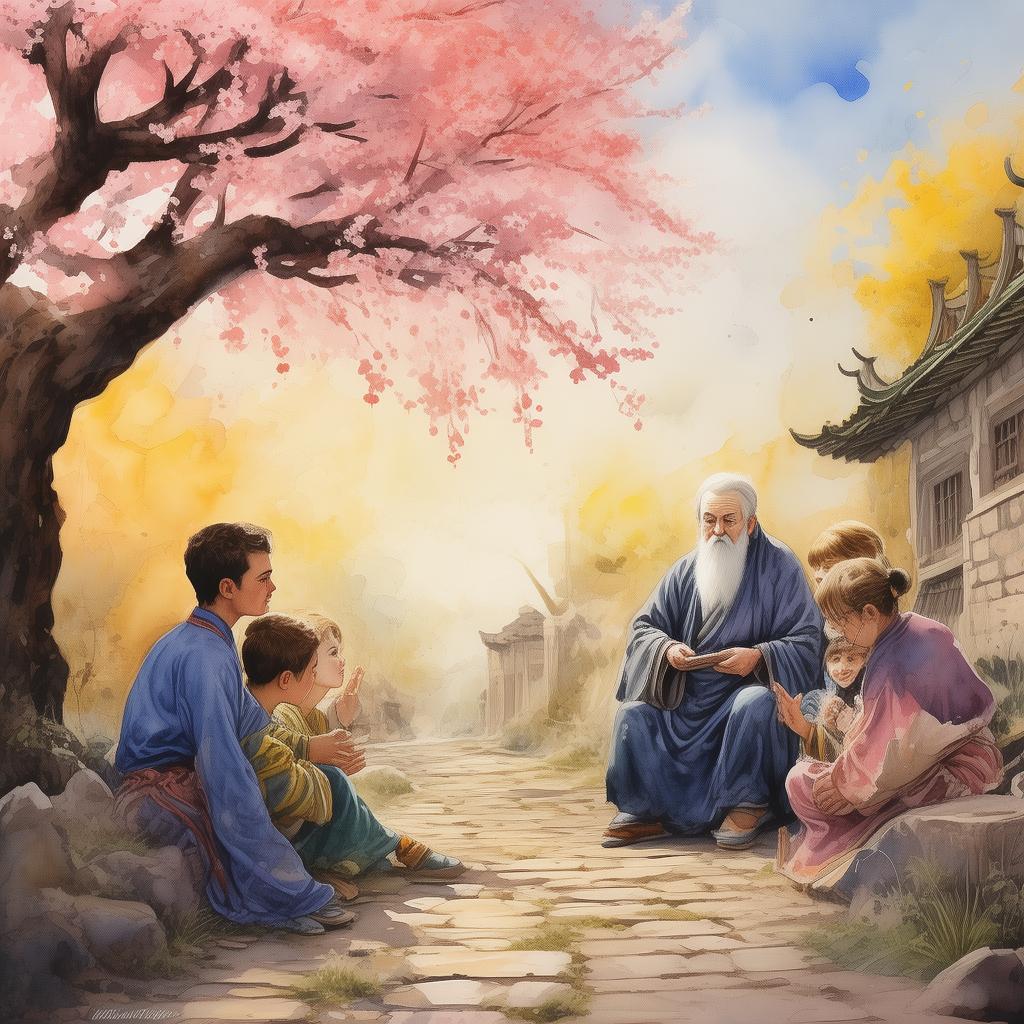
But as Lin delved deeper into the realms, he began to notice a paradox. The more he embraced the idiomatic beauty of each realm, the more he realized that his own culture's idioms were equally powerful, if not more so. The mirror, it seemed, was not just revealing the beauty of others but also reflecting back the beauty of his own heritage.
In one realm, a young artist named Mei painted a picture of the moon. When Lin asked her about the meaning behind her work, Mei replied, "The moon is a symbol of unity, of the connection between earth and sky, between people. It represents the beauty of shared dreams."
Lin, inspired by Mei's words, began to see his own idioms in a new light. He realized that the idioms of his culture were no less beautiful than those of the realms he visited. They too held the power to unite, to inspire, and to reflect the essence of a culture's spirit.
One day, Lin returned to his own time, carrying with him the wisdom of the Parallel Realms. He found himself in a bustling street, where the sound of laughter and conversation filled the air. He looked around, seeing the faces of people from all walks of life, each one speaking their own language, expressing their own beauty.
Lin approached a young boy who was playing with a kite. The boy looked up, his eyes wide with wonder. "What is that?" he asked, pointing to the kite.
"It's a kite," Lin replied, "a symbol of hope and aspiration."
The boy smiled, and Lin realized that the idiomatic beauty of his culture was not confined to books or art. It was alive in the everyday interactions of his people, in the simple expressions of joy and wonder.
That night, Lin returned to the mirror of idiomatic beauty, not as a traveler from another realm, but as a citizen of his own world. He looked into the mirror and saw not just the beauty of his own language, but the beauty of all languages, of all cultures.
He understood then that the true power of idiomatic beauty lay not in the mirror itself, but in the eyes of the beholder. It was a reflection of the human spirit, a testament to the shared experience of life, and a reminder that beauty is as diverse as the cultures that create it.
And so, Lin returned to his life, not as a man who had visited other realms, but as a man who had found a new perspective on his own world. He shared his experiences with others, inspiring them to see the beauty in their own language and culture, and in the cultures of others.
The mirror of idiomatic beauty, it turned out, was not just a portal to other realms, but a mirror of the world itself, reflecting the beauty of every culture and every person who saw it.
✨ Original Statement ✨
All articles published on this website (including but not limited to text, images, videos, and other content) are original or authorized for reposting and are protected by relevant laws. Without the explicit written permission of this website, no individual or organization may copy, modify, repost, or use the content for commercial purposes.
If you need to quote or cooperate, please contact this site for authorization. We reserve the right to pursue legal responsibility for any unauthorized use.
Hereby declared.
